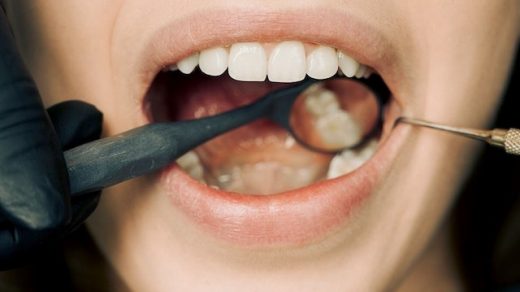Time and again, our patients tell us the same thing during their consultations: “How I look doesn’t match the way I feel.” This misalignment between a patient’s subjective age and their chronological age tends to be especially pronounced among people over 40. Research suggests there could be up to a 20% disparity in how old these individuals see themselves.
It’s little wonder, then, that a facelift is such a popular cosmetic procedure, correcting sagging cheeks, restoring jawline definition, and smoothing nasolabial folds and wrinkles.
While facelift improvements will be immediately visible, the final transformation occurs more gradually as time and healing enhance the results. The initial days following your procedure can be incredibly confusing and even challenging to navigate, so for anyone wondering, “What will I look like one week after a facelift?” this guide is for you.
How Will I Look (And Feel) After My Facelift?
As with any major surgery, the recovery process involves more than just physical and mental healing. The emotional component cannot be overlooked, and facelifts are no exception. Here’s what you can expect after your facelift:
After Surgery
You may feel groggy, dizzy, or a bit unsteady on your feet while the effects of the anesthesia wear off. There may be some temporary facial numbness, and any discomfort or pain should be easily manageable with medication.
Depending on whether you have undergone a mini facelift or a traditional facelift, the placement and visibility of your sutures will vary. Still, you can expect to be sporting bandages and a compression wrap for the next couple of days. You may even have a drain placed to remove excess blood and fluid.
If you can look past the head dressings and early swelling, you will start to see an exciting preview of your final facelift results. Be prepared to have a family member or friend look after you for the first night and follow all postoperative instructions carefully (such as eating soft foods, sleeping on your back, and keeping the surgical sites dry).
After 1 to 2 Days
The first two days following surgery will be when you need to take it the easiest. Now is not the time to be the “strong and silent” type, so please make sure you’re asking for help when you need it. Once you feel up to it, you can take short, slow walks (think down to the mailbox) to keep the blood moving. Save anything more intensive for another day.
Your follow-up appointment will usually fall during this time frame. Your surgeon will remove the bandages, check how your healing is progressing, and answer any questions or concerns you may have. You may be experiencing some unusual sensations like tingling, numbness, or a “tightness” to the skin. Your surgeon can alleviate your worries and reassure you that these are all normal and short-lived parts of the healing process.
Your face will likely be tender and throbbing rather than painful, and swelling will be more noticeable. Both swelling and bruising may extend to areas that weren’t directly targeted in the surgery, such as the neck or around the eyes. You may also notice slight numbness or mobility limitations in your neck or when making specific mouth movements.
After 3 to 4 Days
Postoperative bruising and swelling often peak at this point, which is why many patients find it helpful to avoid looking in mirrors. It also isn’t uncommon for one side to be more swollen than the other. This asymmetry—as well as any lumps or irregular textures that might have surfaced—is another temporary effect of the procedure and not an indication that something went “wrong” with your facelift.
These two days tend to be the most emotionally volatile as self-doubt and anxiety kick in. Remember that all of this is normal. Take a deep breath, look at your favorite before & after photos, and remind yourself that they were all once in your exact same position, and soon enough, you’ll be seeing your own transformation.
After 1 Week
By the one-week mark, you’ll have started to turn the corner on your recovery. Swelling will begin to subside, bruises will yellow and lighten, and your energy levels and self-confidence in your appearance will start to increase. You won’t be back at work for a few more days, but you should soon be able to slowly and gently begin reincorporating nonstrenuous housework and exercise into your daily routines.
A slight double chin may emerge as gravity pulls the swelling and excess fluid down toward the neck, but this, too, will pass in the next few days. Although the bruising is still present and the sutured skin is still healing, you will look and feel much more like yourself—a younger, more rested-looking version of yourself.
1 Month (And Beyond)
After a month has passed, most patients will feel comfortable with being seen by others. You’ll be back to doing more strenuous activities, and bruises and other skin discoloration will have healed. As our plastic surgeons at The Center for Cosmetic Surgery strive for the most natural-looking results possible, you may notice that your facelift goes largely unnoticed by others! They may comment on how healthy and well you look or ask if you’ve lost weight, but you can put to rest any concerns about how “obvious” it is that you’ve had a facelift.
The vast majority of the swelling will have diminished by now, but there may still be a lingering tightness to the skin for the next several weeks. This swelling will generally be only noticeable to you, but it does tend to create a pleasant fullness to the face, particularly around the cheeks. Some patients even choose to get dermal fillers to replace this lost volume once the swelling subsides a few months later.
Your facelift transformation will generally feel complete between 3 to 6 months after your surgery, although it can take up to a year for the last of the swelling to disappear. When it comes to how long the results will “last” (see our previous blog post for more information), we can phrase it as a matter of time (around 10 years) or, more accurately, as a matter of personal satisfaction. As long as your face continues to reflect the vibrant way you feel, the results can be a source of great joy and contentment for many years to come.
If you are interested in “looking how you feel” and would like to learn more about our facelift procedures, please request a consultation or call us at
(303) 278-2600.







